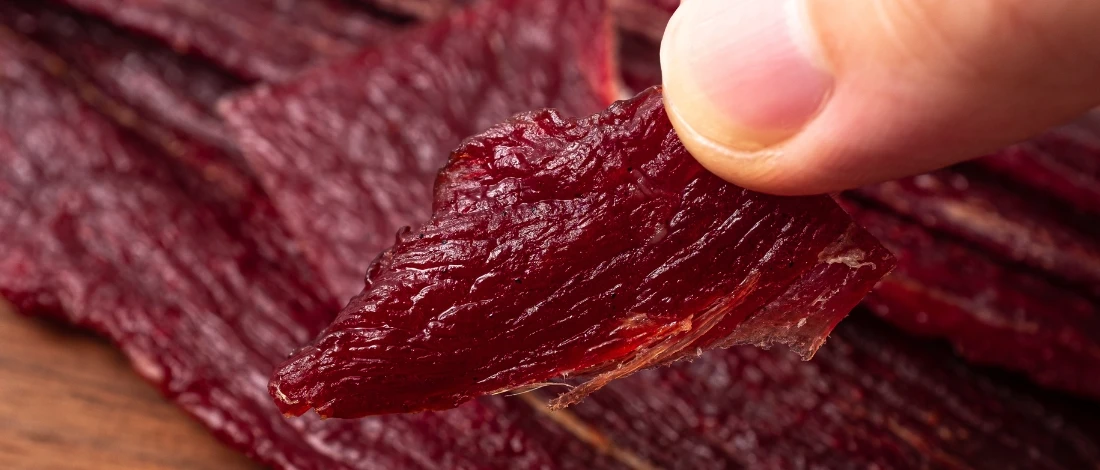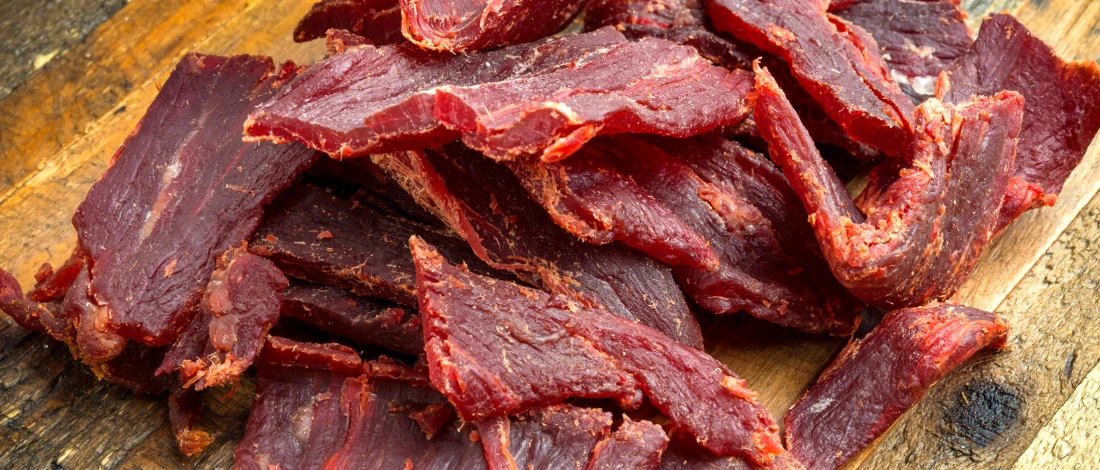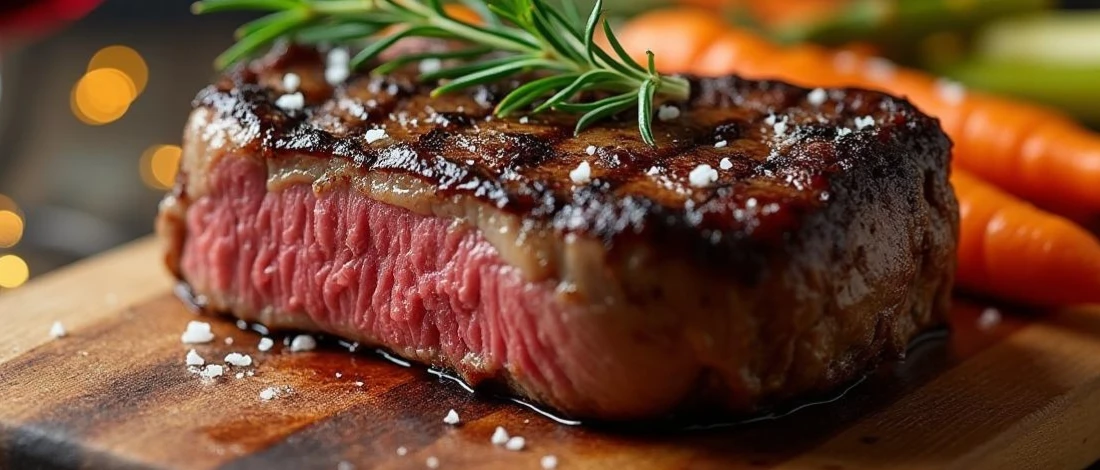I started my carnivore journey six years ago, and it wasn’t before long I realized that marinating was a great and simple way to amp up the flavor in my meat without adding extra calories or fat.
At Carnivore Style, we’re all about finding easy ways to make meat taste better without complicating your diet.
Over the years, I've tried different marinade blends and finally found one that works perfectly every time.
Today I'll share my easy step-by-step meat marinating process and some mistakes you should avoid to achieve the most delicious tasting meat.
Let's get started.
Quick Summary
- Marinating meat enhances its flavor and involves a blend of oil, acid, sweetener, and spices, with the meat marinated in the refrigerator to avoid bacteria growth.
- The process includes making the marinade, forking the meat to allow better absorption, marinating the meat in a bag or plastic wrap, refrigerating, and then cooking.
- Common mistakes to avoid include using too much marinade, oversalting, using too many ingredients, and reusing the marinade after it has been in contact with raw meat.
Ingredients For Marinade

If you're like me and love homemade marinades for meat, here are six key ingredients you need to get started.
- Acid: The strongest acidic ingredients for meat include citrus juice (lemon juice), soy sauce, white vinegar, and Worcestershire sauce. Note that soy sauce has a lot of salt in it, so avoid adding more salt while using the sauce.
- Salt: Because salt is the cornerstone of any marinade, use it liberally. It ensures that the marinade penetrates the cuts of meat well.
- Oil: Rapeseed oil, sesame oil, and olive oil are neutral oils that I love. Generally, use any vegetable oil you have.
- Sweetener: I recommend using agave, granulated brown sugar, or honey because they enhance sweetness while promoting a caramel-like flavor and a brown hue on the meat.
- Aromatics/ Herbs and spices: If you love fragrant meat that oozes aroma, use natural flavorings like fresh or dried herbs (rosemary&thyme), fresh garlic, ginger, and some steak seasoning.
- Spiciness: For a hot, smokey taste, use chili, tabasco, jalapenos, or other fresh peppers you can find.
"When meat is subjected to an acidic marinade, the links between protein bundles weaken, and the proteins unwind, resulting in soft, easy-to-cook meat."
- Jessica Gavin, Certified Culinary Scientist
Easy Steps To Marinate Meat

One of the simplest methods for enhancing the flavor and texture of any meat is to marinate it. Here's how to marinate foods correctly.
- Make your marinade: The first step in marination is to make your ingredient blend. Mix all your ingredients in a bowl and stir thoroughly to combine everything well.
- Fork your meat: Before marinating the meat, whether chicken breasts or pork tenderloin, puncture several holes with a fork to allow it to absorb the sauce more quickly. Using a knife also helps, especially when marinating larger steak slices.
Note: Ensure you're using wholly thawed-out meat. - Marinate the meat: You can put the whole piece of meat in a Ziploc bag or a plastic wrap and pour in the steak marinade and shake well. If you're working with meat slices, dip one slice at a time in the marinade bowl, ensuring that every side is completely covered.
- Refrigerate: Toss the meat in the refrigerator to marinate for as long as your recipe dictates. Marinating meat at room temperature can cause bacteria growth. That's why it's recommended to let it sit in colder temperatures [1]. Tender chunks of beef require up to 2 hours to marinate and soak the flavors. Tougher meat cuts need 4 to 24 hours but don't go overboard because more than that might cause your meat to become mushy.
- Cook your meat: In my experience, the best way to cook marinated meat is to grill it. However, you can use any cooking process depending on the meat type and the recipe you follow.
Related Articles:
Mistakes To Avoid When Marinating Meat

Even though making your marinade and marinating the meat is an easy, quick-fix process, here are some mistakes to avoid.
- Using too much marinade: If you try grilling a piece of meat marinated in a thick coating, the marinade will leak onto the heat source, resulting in flames and smoke. Also, a thick marinade layer causes the meat to simmer rather than sear; hence you won't get a crispy meat surface.
- Too much salt: While salt is a key ingredient in any steak marinade, oversalting can cause the meat to dry and toughen up when cooked. This is because salt pulls out more moisture from the meat fibers when overused.
- Too many ingredients: Although marinades are all about bold tastes, this does not mean that they must contain every flavor possible. Using every ingredient in your pantry can produce conflicting flavors in your meat. Less is always more when it comes to marinades, so go with flavors that complement each other and blend well with the natural meat flavors.
- Reusing the marinade: After marinating your meat batch and you have some leftover steak marinade, I don't recommend reusing it on your next meat batch. Once raw meat comes in contact with the marinade, it is exposed to harmful bacteria, especially if you reuse the remaining marinade without cooking.
The most common mistakes when marinating meats are; not enough marinating time, adding too much salt, and adding too much acidity. Larger, tougher cuts of meat require longer marinating times so make sure you are marinating for the proper amount of time for the cut you are using. Too much acidity and salt not only produce an undesirable taste but can also start to "cook" the meat causing a mushy texture.
- Andrea Mut, Chef and Founder of My Pocket Kitchen
Also Read: How to Sear Meat?
FAQs
What Are the Two Types of Marinades?
The two types of marinades are dry or wet marinades. Dry marinade involves using dry ingredients like brown sugar, herbs, and spices. Wet marinade involves using liquid marinades like lime juice, soy sauce, fish sauce, and sesame oil.
How Long Should You Marinate Meat?
You should marinate meat for at least 2-4 hours for the meat to soak in the flavors of the ingredients. For the best results, you can marinate the meat overnight.
Which Are the 3 Basic Components of Marinating Pork Chops?
The three basic components of marinating pork chops are acids, oils, and spices for flavoring.
How Long Should You Marinate in Lemon Juice?
You should marinate in lemon juice for no more than 3 hours because lemon is extremely acidic and can ruin the meat and make it too soggy.
At Carnivore Style, we want to help you enjoy every bite of your meat with simple, effective tips. Check out our other guides and recipes to keep your carnivore cooking fresh and flavorful.
Reference:
- https://www.ncbi.nlm.nih.gov/pmc/articles/PMC6048374/








